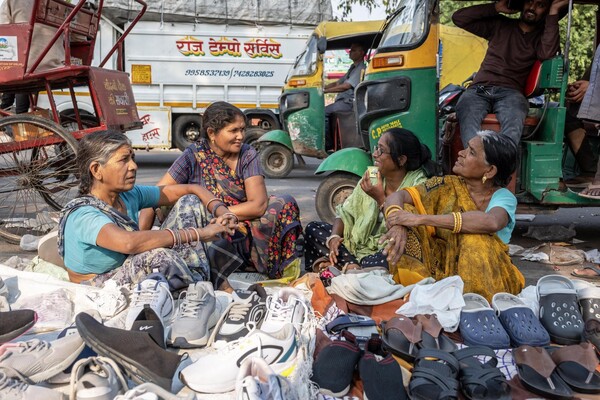
Griffin Pitt, right, works with two other student researchers to test the conductivity, total dissolved solids, salinity, and temperature of water below a sand dam in Kenya.
(Image: Courtesy of Griffin Pitt)
In the last 30 years, childhood obesity has more than doubled, according to the Centers for Disease Control and Prevention, in adolescents, it has quadrupled. By 2012, more than one-third of children and adolescents were overweight or obese.
While most of the attention has been centered on its causes, the Center for High Impact Philanthropy at the University of Pennsylvania has examined this national epidemic with a different angle: reducing childhood obesity rates through charitable giving.
Now the Center has unveiled a new guide, “Donor Strategies to Prevent Childhood Obesity: Lessons from Greater Philadelphia,” which focuses on high-impact approaches like starting early, increasing access and enabling healthy choices.
“The strategies we present are interlocking,” said Carra Cote-Ackah, director of partnerships and strategic initiatives at the Center. “By investing in programs that provide early support and education to pregnant and new moms, a donor can have a significant impact on a child’s likelihood of becoming overweight or obese. As that child grows older, she'll need access to healthy foods and physical activity options, as well as an environment that allows her to make healthy choices. For too many children, these supports aren't in place, but donors can help fill these gaps.”
The guide outlines five ways that donors can put those childhood obesity prevention investment strategies into action. For each approach, analysts from CHIP present an exemplary program, its results and its cost-per-impact. In essence, the guide answers the question: what’s the best bang for the buck?
So, how much does it cost to get children exercising more often, drinking less soda and eating healthier? Based on one model cited in the guide, the answer is sometimes as low as $10.
“Using data from a comprehensive school health program, it can cost approximately $10 to $25 for each student to exercise regularly, consume less soda and eat more fruits and vegetables," said Danielle Wolfe, a social impact fellow at the Center. “When added to a statistically significant decline in childhood obesity observed in a region that implemented the health model in its school districts, these results point to the promise of such programs.”
Also highlighted in the guide is Philadelphia’s progress in reducing childhood obesity rates among higher-risk populations. In addition, Philadelphia has reported a statistically significant decline in obesity rates among students from lower-income families.
Unlike other cities, Philadelphia’s comprehensive approach to preventing childhood obesity during the last decade has combined increased access to healthy food, nutrition education and exercise.
“Donor Strategies” adds that many municipalities and organizations are eager to adapt lessons learned about childhood obesity prevention and treatment in Philadelphia.
“Whether you support high-impact approaches that have already achieved results, strengthen promising approaches to enhance their effectiveness, invest in research and development so we have better tools in the future,” said Katherina Rosqueta, founding executive director of the Center, “or support sector-wide systems for feedback and learning, the ultimate desired impact is the same: healthier children, who are better able to achieve their full potential, and a stronger society for us all.”
Founded in 2006, CHIP has emerged as a trusted authority for donors around the world who are seeking to do more good. Through independent analysis, education and select consulting efforts, the Center's multi-disciplinary team provides the tools for donors to move confidently from good intentions to high impact.
“Donor Strategies to Prevent Childhood Obesity” was made possible through a grant awarded to Philanthropy Network Greater Philadelphia on behalf of the Greater Philadelphia Food Funders from the Convergence Partnership at the Tides Foundation. The national grant was matched with support from six local funders: the Claneil Foundation, Delaware Valley Regional Planning Commission, Philadelphia Foundation, Leo & Peggy Pierce Family Foundation, Pottstown Area Health and Wellness Foundation and St. Christopher’s Foundation for Children.

Griffin Pitt, right, works with two other student researchers to test the conductivity, total dissolved solids, salinity, and temperature of water below a sand dam in Kenya.
(Image: Courtesy of Griffin Pitt)

Image: Andriy Onufriyenko via Getty Images

Four women street vendors sell shoes and footwear on a Delhi street.
(Image: Kannagi Khanna)

nocred